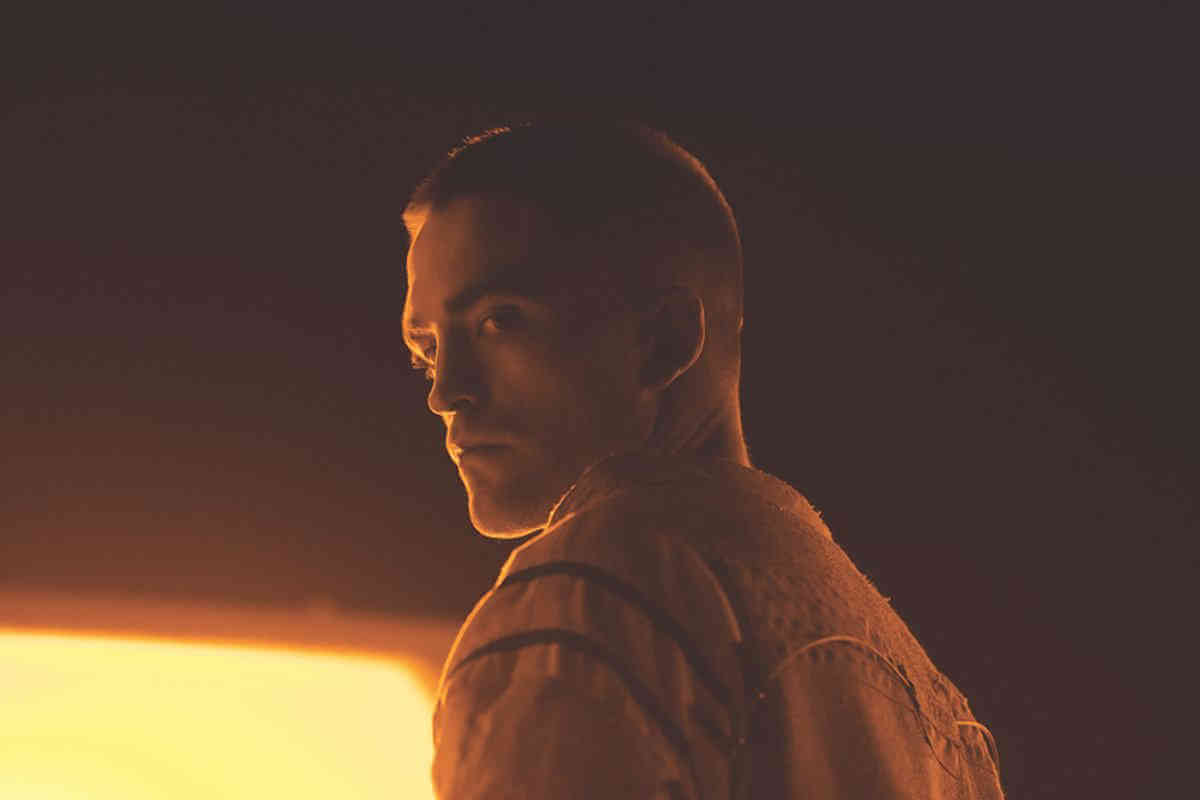In space, no one can hear your existential terror. Sorry for the Dad joke, but French director Claire Denis’ “High Life” returns to a mode of arthouse sci-fi that flourished briefly in the wake of “2001: A Space Odyssey” but has been commercially marginal after “Star Wars” let the geeky boys take back the genre. Denis creates a more palatable version of the misanthropy expressed in her horror film “Trouble Every Day” and incest drama “Bastards.” As she has said, “ ‘High Life’ speaks only of desire and fluids.”
Her approach goes down easier here because she balances it with formal elegance and allows her characters, particularly Monte (Robert Pattinson) and his daughter Willow (seen as an infant, child and teenager), moments of pleasure and respite in a garden with Biblical resonance. Nevertheless, this is a film whose title appears against corpses falling into the void.
“High Life” takes place on board a ship of inmates heading toward a black hole. Since they were sentenced to death anyway, they have been sent to space to research the possibility of harnessing energy from it. It begins with Monte repairing the ship as his infant daughter gurgles inside. The film then moves back in time to when the ship was more crowded, with Dr. Dibs (Juliette Binoche) conducting her own research by collecting sperm samples from all the men onboard. Pleading celibacy due to his misgivings about giving birth to a child who’s likely to face an early death, Monte refuses.
“High Life” is serious about sex – and sexual violence. It never shows full frontal nudity, but it treats bodily fluids as a primal medium of exchange. When Dr. Dibs jumps on Monte as he sleeps to get a sample of his semen, he remains unaware of her violation. One of the men attempts rape in a sudden assault that ends in his death. Monte himself may be committing incest with his teenage daughter, although the film remains ambiguous about this.
It says something about film critics’ nerdy puritanism that we’ve tended to giggle about the image of Monte’s seminal fluid and the scene where Dr. Dibs goes to a room with mechanized sex toys and uses them to masturbate. The Guardian gave its rave review of “High Life” the very mature headline of “Orgasmic Brilliance in Deep Space.” But how many times have we seen semen in cinema outside of porn and the hair gel gag in “There’s Something About Mary?”
Denis’ vision of space is low on special effects and heavy on cinematography tinted a beautiful red or blue. The editing of “High Life” shatters its narrative. Only at the end — or after a second viewing — is its chronology clear. The film begins and ends with Monte and his daughter. Pattinson’s performance brings out his character’s delicacy, which does not cancel out his character’s darker side. (Pattinson even sings the song, written by Denis’ usual composer Stuart Staples, that plays over the closing credits.) The longer “High Life” goes on, the more we realize how much we don’t know about Monte.
The script, credited to Denis and Jean-Pol Fargeau, is the weakest element of “High Life.” Although she knows English well and has made other films partially in the language, the dialogue suffers from clumsiness and awkward phrasing. (Two other writers are officially cited for some form of script collaboration, apart from the “written by” credit.) Binoche and Pattinson stand out in a large ensemble cast because Dr. Dibs, Monte, and his daughter are the only three characters that “High Life” seems to really care about. There’s a sense that the rest of the cast exists mostly to get killed off.
But if “High Life” isn’t a masterpiece on the level of Denis’ best films, the fear of death that it describes is as untidy and blunt as the symbolism of a spaceship heading toward a black hole that will kill everyone onboard. Watching “High Life” is never as crude an experience as that sentence makes it sound. Andrei Tarkovsky, a big influence on Denis, brought together the material realm and a devoutly Christian spirituality. Instead, “High Life” lingers on a sensuality that keeps solace one degree from terror. Critic Adam Nayman praised “its mix of elusive, fleeting sensations and full-frontal, blunt force and trauma.”
We might be able to travel to the stars, but our lives’ possibilities are always bound by our bodies. As pessimistic as the film proves to be, it shows why sex and parenthood feel like hedges against despair, even if they also lead its characters into dangerous territory.
HIGH LIFE | Directed by Claire Denis | A24 | Opens Apr. 5 | Angelika Film Center, 18 W. Houston St. at Mercer St.; angelikafilmcenter.com/nyc | BAM Rose Cinemas, 30 Lafayette Ave. at Ashland Pl.; bam.org



































